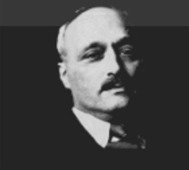James-Franck-Programm

The German-Israeli James Franck Programme on 'Laser-Material Interaction' was launched in 1989 at the initiative of Prof. Raphael Levine (Hebrew University Jerusalem, an external scientific member of the MPQ), Prof. Joshua Jortner (Tel Aviv University) and Prof. Edmund Schlag (Technical University of Munich). An important goal of this programme, which is named after the German-Jewish physicist and Nobel Prize winner (1925) James Franck, is to promote communication and cooperation in laser research between Israeli and German scientists and also to integrate young scientists, doctoral and post-doctoral students. The initiative is funded by the Minerva Stiftung, a subsidiary of the Max Planck Society.
Once a year the committee appointed by the Minerva Stiftung meet; since 1989 this committee has been chaired by Prof. Karl-Ludwig Kompa, (now) emeritus director of the MPQ. The committee advises on issues concerning the scientific orientation and distribution of funding between the different institutions. It is also responsible for organising the annual symposium which is held alternately in Germany and Israel.
Originally there were two Israeli institutes taking part in the James Franck Programme: Tel Aviv University and the Hebrew University (Jerusalem). In 1995 three more Israeli research centres joined: Ben Gurion University of the Negev (Beersheba), Technion Israel Institute of Technology (Haifa) and the Weizmann Institute of Science (Rehovot).
The focus of research in the programme today is the control of chemical reactions using coherent laser light. The laser here is used as a source of information (coded in the quantum states of the photons), and the chemistry thus becomes information science. Among the Israeli researchers, work still centres on the theory, illustriously represented by the two Israeli founding fathers, Prof. Levine (PhD in mathematics and information theory) and Prof. Jortner (PhD in physical chemistry), both outstanding for their work in the theory of chemical dynamics. The German researchers on the other hand have excellent experimental systems such as the Free Electron Laser (FEL) at DESY (Hamburg) and high-performance lasers at the Max Born Institute in Berlin and at the MPQ, to which Israeli physicists have access as part of the programme.
More Information about the James Franck Programme
